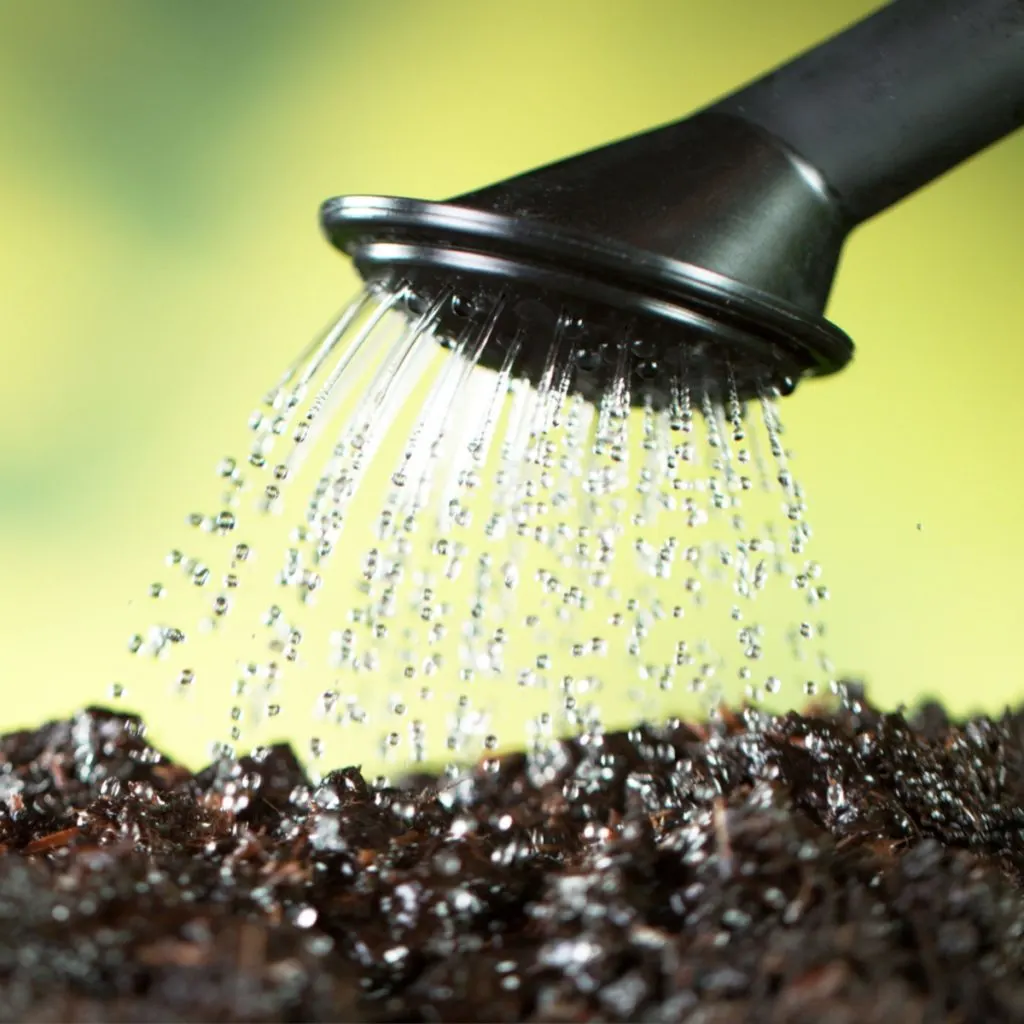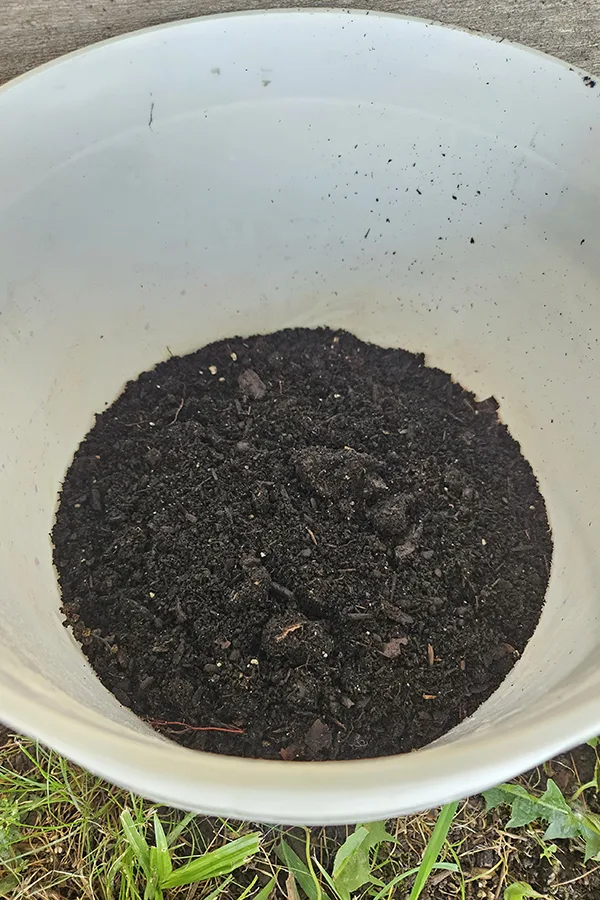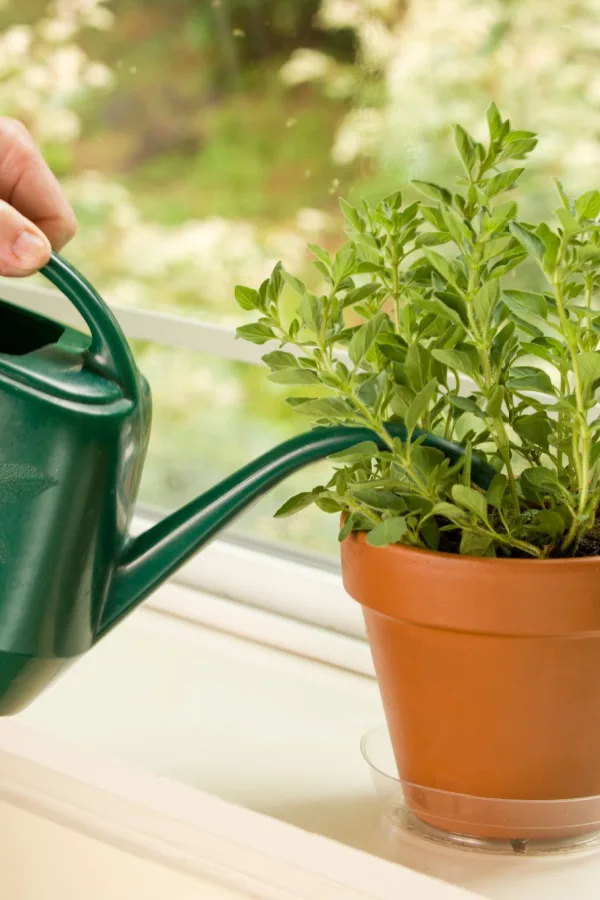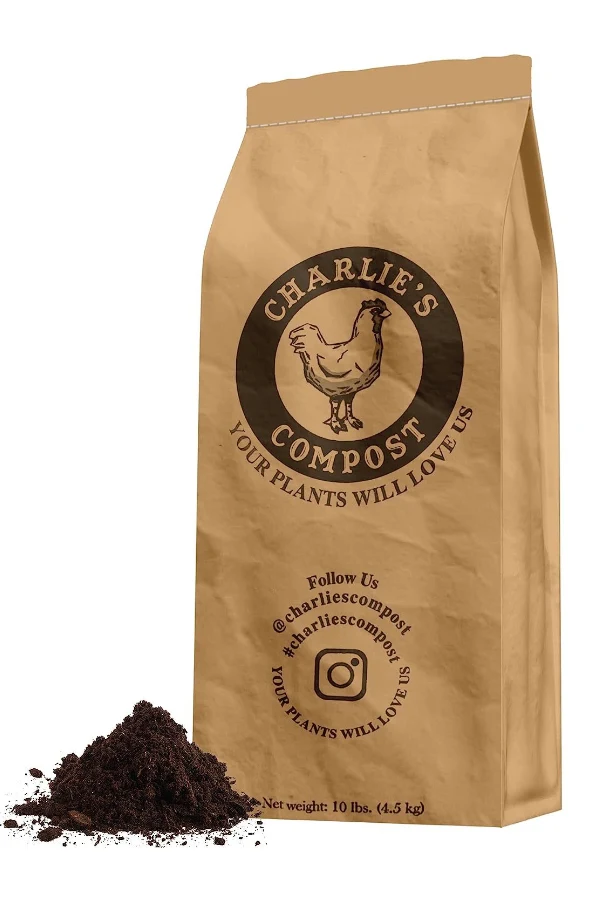One of the easiest, best and least expensive ways to power your vegetable and flower plants is to make your own compost tea fertilizer. Not only can it be made without any special equipment, if you happen to have your own compost pile, it can also be made completely for free!
Compost tea is made from just two basic ingredients – compost and water. But as simple as those ingredients are, the resulting liquid is nothing short of spectacular for a wide range of plants – from vegetable and herbs, to annual flowers, perennial flowers, shrubs, bushes, trees and more.
Compost tea works its magic to power plants in two separate ways. First, the nutrients are absorbed through the foliage as the liquid hits the leaves. In addition, the roots also absorb the fertilizer as the liquid works down through the soil. This dual approach allows for a steady and full supply of nutrients to power your plants.

One thing is for sure, compost tea is overflowing with nutrients. All of the energy and beneficial bacteria that lives in compost leaches into the water to create a gentle but powerful fertilizer. And even better, the nutrients are in a form that are easy to absorb for plants, allowing them to take in and use all of that power quickly.
The best news of all is that even if you don’t happen to have a compost pile, you can still make a highly effective tea using bagged compost. Using compost from your local nursery or garden center will work equally well, creating the same powerful fertilizer tea a homemade compost pile can. Affiliate Product Link: Charlies Bagged Compost
How To Make Compost Tea Fertilizer – And Use It Power Plants Naturally
The Process
In order to make a batch of compost tea, you really only need five things: compost, water, a 5-gallon bucket, a strainer, and a stir stick. Although you can use partially composted materials, it’s best to use compost that has completely broken down.
Finished compost, because it is fully decomposed, will give you the most nutrients of all. Bagged compost, which is now fairly easy to find in most gardening stores, works equally well too.
Start by filling 5-gallon bucket about ⅓ to ½ full of compost. Next, you simply add water until you reach within an inch or two of the top of the bucket. The only thing here is to make sure to well water, untreated tap water or rain water.

Make sure not to use water that comes from a water softener or city treatment plant. Softened water and municipal often contains salt and other chemicals. If it is your only choice, pour the water and let it sit for a few days to allow the chemicals to leach out.
Once filled, stir the compost and water vigorously with the stir stick to agitate the compost. This will help the water to start absorbing the nutrients from the compost. The name “compost tea”comes from this very process, as the water soaks in the compost just like making tea.
No Need For Special Equipment – How To Make Your Own Compost Tea Fertilizer
Contrary to what you might read on the internet or on other gardening websites, you do not need fancy bubbling or aerating pumps to make compost tea. Although they will help to add oxygen into your mixture, they simply aren’t needed.
Just stirring the mixture once or twice a day is more than enough to add adequate oxygen. If your mixture starts to look like dirty, muddy water, you are on the right track. Stirring it daily will allow the compost to leach more and more nutrients into the water.
Listen In Below To Our Podcast On How To Make Compost Tea At Home!
After 5 to 7 days of mixing, the liquid is ready to strain and use. To do this, use a large colander placed over another 5-gallon bucket. Pour the mixture through the colander and into the bucket.
The solid compost that you are left with can be thrown back into your compost bin to recharge. If you don’t have a compost pile at home, just take the solid compost and use it as a natural mulch around your growing plants.
Store the tea in your garage or shed. It’s best to put a lid on the tea to help keep evaporation to a minimum and keep out of the way of pets and children. It is not toxic in the least, but it might get them a bit dirty if they get in it!
How To Use Compost Tea Fertilizer
Nearly all outdoor and even indoor plants can benefit from a little boost of compost tea. Here is a quick rundown of how and where to use it best!
Seedlings & Young Transplants
Because seedlings and young transplants are still tender and smaller than fully-grown plants, you will want to make sure to dilute the compost tea prior to using for these young plants.
Dilute one gallon of compost tea with one gallon of water. Again, be sure to use fresh water and not water that has gone through a water softener system.
When plants are a couple of weeks old, use this diluted mixture in replacement of your traditional watering. It is amazing what a little all-natural liquid fertilizer will do for new seedling growth!
Hanging Baskets & Containers – How To Make & Use Compost Tea Fertilizer
If you want in on a little secret on how to keep hanging baskets and container flowers and plants thriving and looking beautiful all season long, then compost tea is your answer. It is the perfect steady dose to power container plants!
Compost tea allows your flowers and plants to keep on thriving. Even quick growers and heavy feeders like annuals greatly benefit from a dose of compost tea.
Simply use compost tea instead as a replacement for watering your plants once a week. Aim to use around a quarter of a gallon of tea per container, depending on its size. For larger containers, use a half-gallon to provide a good source of nutrients.
Vegetable Plants – How To Make & Use Compost Tea Fertilizer
Compost tea is the perfect, all-natural liquid fertilizer for vegetable plants as well. Wait until the transplants or your seeds have grown enough to allow for plants to become established. Then, use compost tea as a replacement to watering your plants once every week.

Aim for around ¼ of a gallon of fertilizer per plant. Be sure to soak the foliage as well as the base of the plant since the tea can be absorbed through the leaves as well as through the roots.
Just as with fertilizer, you want to apply in the early morning or late evening. Applying it during the heat of the day allows for too much of the tea to evaporate off of the plants. Fertilizers also have a tendency to burn foliage with the harsh heat of the sun’s rays.
Using Compost Tea In Flower Beds – How To Make & Use Compost Tea Fertilizer
In addition to vegetable plants and container plants, compost tea is a great boost for annual and perennial flower beds too. Just as with garden vegetables, apply the tea every week to keep plants supplied with a steady stream of nutrients.
Shrubs, Bushes & Newly Planted Trees
Even your larger plants can benefit from a good drink or two of compost tea throughout the year. Aim for using around 2 to 3 gallons of tea per shrub or bush.
For newly planted trees, it is also a great way to provide the plants with an added boost of nutrients when becoming established. Use it as the initial water after you have finished planting the new tree.
Here is to powering your plants this year with compost tea – the perfect low-cost, all natural fertilizer!
Simple Garden Life
Follow Our Facebook Page For Even More Great Tips! Simple Garden Life Facebook Page
Simple Garden Life is a website dedicated to keeping gardening fun, simple and enjoyable! We publish two new articles each week along with a new garden podcast episode every two weeks. This article may contain affiliate links.

